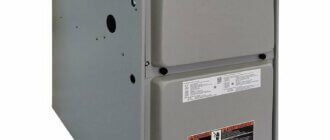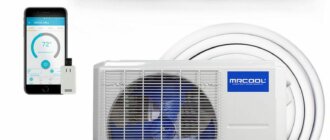Businesses, residents warm-up to eco-friendly HVAC systems
As the world becomes more aware of its impact on the environment, businesses and residents alike are looking for eco-friendly solutions to reduce their carbon footprint.
One area that has seen a rise in popularity is HVAC systems that prioritize sustainability and energy efficiency. From geothermal heating and cooling systems to solar-powered options, these green HVAC solutions offer benefits beyond just reducing your environmental impact. In this blog post, we’ll explore why businesses and residents are turning to eco-friendly HVAC systems, the different types available, real-world examples of how they’re being used today, and what the future holds for this growing trend.
The Rising Trend of Eco-Friendly HVAC Systems
The demand for eco-friendly HVAC systems is on the rise as consumers become more aware of environmental impact and cost-savings. This trend has been fueled by government incentives, policies, and awareness campaigns that emphasize the importance of reducing carbon footprints.
With global warming becoming a major concern in recent years, people are now actively searching for ways to reduce their carbon footprint. Eco-friendly HVAC systems are an ideal solution since they consume less energy than traditional heating and cooling systems making them environmentally friendly.
Additionally, due to advances in technology eco-friendly HVAC systems have now become more affordable which means businesses can save on costs while also being environmentally conscious.
Moreover, these new technologies provide better indoor air quality compared to older conventional methods as they do not rely heavily on fossil fuels thus minimizing pollution levels indoors and outdoors alike.
Therefore it’s no surprise that both residential and commercial properties around the world are starting to make the switch from traditional HVAC units towards greener solutions such as Geothermal Heating & Cooling Systems, Solar Powered HVAC Systems or Energy Star Certified Systems – all aimed at saving money whilst making our homes comfortable without harming our planet.
Why Businesses and Residents are Turning to Eco-Friendly HVAC Systems
There has been a growing trend in recent years for businesses and residents to switch to eco-friendly HVAC systems. One of the main reasons is due to environmental concerns, as traditional HVAC systems are known for their negative impact on the environment.
Cost-savings also play a big role in this shift, as eco-friendly HVAC systems tend to be more energy-efficient and can result in lower utility bills over time. In addition, government incentives and policies promoting sustainable practices have encouraged many businesses and homeowners to make the switch.
Improved indoor air quality is another significant factor driving this trend. Traditional HVAC systems can circulate pollutants such as dust, mold, and allergens throughout buildings, negatively impacting occupants’ health. Eco-friendly alternatives use advanced filtration technology that removes these harmful particles from indoor air.
Moreover, with advancements in technology bringing new options like geothermal heating and cooling systems or solar-powered HVAC solutions into play; it’s become easier than ever before for residential complexes or office buildings alike at any scale level to take action towards sustainability goals by using green HVAC solutions that save them money while being environmentally conscious too!
Environmental Impact
The environmental impact of HVAC systems has been a growing concern over the years. Traditional heating and cooling systems have been known to contribute significantly to greenhouse gas emissions, which can lead to climate change and other negative impacts on our environment.
Eco-friendly HVAC systems, however, are designed specifically with the environment in mind. These systems use renewable energy sources such as solar or geothermal power instead of relying solely on fossil fuels.
By using these alternative energy sources, eco-friendly HVAC systems can reduce carbon emissions and help combat global warming. In fact, according to the U.S. Department of Energy’s Energy Star program, replacing an old inefficient HVAC system with an Energy Star certified one can reduce a household’s carbon footprint by up to 10 metric tons per year!
Moreover, many eco-friendly HVAC systems are also designed with more efficient components that require less energy overall compared to traditional models. This means that not only is the impact on the environment reduced but so is your home or business’ energy consumption.
Choosing an eco-friendly HVAC system for your property not only benefits you financially through lower utility bills but also contributes positively to our planet’s health in terms of reducing harmful emissions and promoting sustainability.
Cost-Savings
One of the main reasons why businesses and residents are turning to eco-friendly HVAC systems is cost-savings. Although these systems may have a higher upfront cost, they can save money in the long run.
Eco-friendly HVAC systems use less energy compared to traditional heating and cooling systems. This means that businesses and residents can lower their utility bills by using these energy-efficient solutions.
Additionally, some of these systems come with features such as programmable thermostats which allow users to control temperature settings based on occupancy levels. This helps prevent excessive heating or cooling when no one is present, further reducing energy usage.
Moreover, some governments offer tax incentives for installing eco-friendly HVAC systems. For instance, Energy Star certified systems can qualify for federal tax credits up to $300 for homeowners.
Investing in an eco-friendly HVAC system not only benefits the environment but also saves money in the long run.
Improved Indoor Air Quality
One of the major benefits of eco-friendly HVAC systems is improved indoor air quality. This is especially important in commercial and residential buildings where people spend a significant amount of time indoors.
Traditional heating and cooling systems often circulate dust, allergens, and other pollutants throughout a building, which can negatively impact the health of occupants. Eco-friendly HVAC systems use advanced filters that remove harmful particles from the air, resulting in cleaner and healthier indoor environments.
In addition to improving overall health, better indoor air quality has been shown to increase productivity levels in workplaces. Poor air quality can lead to headaches, fatigue, and even respiratory issues – all factors that can decrease workplace efficiency.
Eco-friendly HVAC systems also help regulate humidity levels within a building. Proper humidity control helps prevent mold growth and reduces the risk of respiratory infections caused by dry or humid conditions.
Improved indoor air quality is one of the many reasons why businesses and residents are turning to eco-friendly HVAC solutions for their heating and cooling needs.
Government Incentives and Policies
The government has implemented various incentives and policies to encourage the use of eco-friendly HVAC systems. These initiatives aim to reduce carbon emissions, promote energy efficiency, and improve air quality.
One such policy is the Energy Star program which provides certifications for heating and cooling equipment that meet strict energy efficiency standards. This certification helps consumers identify products that are environmentally friendly and cost-effective in the long run.
Additionally, there are tax credits available for homeowners who install geothermal or solar-powered HVAC systems. The Federal Renewable Energy Tax Credit can provide up to 26% of the total system cost as a tax credit, making it more affordable for homeowners to invest in sustainable technology.
Local governments may also offer rebates or other financial incentives to businesses that switch to eco-friendly HVAC solutions. By implementing these policies, governments hope to create a market demand for greener technologies while simultaneously reducing greenhouse gas emissions.
As public awareness grows about environmental issues, we can expect more government-led initiatives aimed at promoting sustainability across all industries including HVAC.
Types of Eco-Friendly HVAC Systems
There are several types of eco-friendly HVAC systems available in the market that can help businesses and residents reduce their carbon footprint. One such system is the geothermal heating and cooling system, which uses the constant temperature of the ground to heat or cool a space. This system is highly efficient and requires very little maintenance.
Another option is solar-powered HVAC systems, which use energy from the sun to power heating and cooling units. These systems are becoming increasingly popular as solar technology improves and becomes more affordable.
Energy Star certified systems are also an excellent choice for those looking for green HVAC solutions. These units meet strict energy efficiency guidelines set by the Environmental Protection Agency (EPA) and can significantly reduce energy consumption compared to traditional models.
Aside from these three main options, there are other types of eco-friendly HVAC systems available on the market today, including air-source heat pumps, radiant floor heating, and hybrid heating systems that combine two or more technologies for maximum efficiency.
Ultimately, choosing an eco-friendly HVAC system will depend on individual needs and preferences. However, it’s essential to do your research before making a decision so that you can make an informed choice that minimizes impact on both your wallet and our planet.
Geothermal Heating and Cooling Systems
Geothermal heating and cooling systems are becoming increasingly popular among businesses and residents looking for eco-friendly HVAC solutions. This system harnesses the natural heat from beneath the ground to provide comfortable indoor temperatures in a sustainable way.
The geothermal system works by transferring heat between the earth’s surface and underground loops of pipes filled with water or refrigerant. During winter, this process pulls heat from the ground into buildings while during summer, it removes excess warmth from them.
One of the main advantages of geothermal HVAC systems is their energy efficiency. They require less energy to operate than traditional HVAC units because they use renewable energy resources as their primary source of power.
Another benefit is that these systems have a long lifespan compared to other HVAC options, making them a cost-effective solution over time. Additionally, they produce fewer greenhouse gas emissions which helps mitigate environmental impact.
Although installing a geothermal system can be expensive upfront, many government incentives and tax credits exist which help offset those costs. In fact, some states offer rebates or low-interest loans for homes or businesses that adopt green HVAC solutions like geothermal heating and cooling systems.
Investing in an eco-friendly option like a geothermal heating and cooling system not only benefits your wallet but also contributes positively towards our planet’s health.
Solar Powered HVAC Systems
Solar powered HVAC systems are becoming an increasingly popular choice for businesses and residents looking to cut down on their energy usage and costs. These eco-friendly systems use solar panels to harness the power of the sun, which in turn is used to operate the heating and cooling system.
One of the biggest advantages of solar-powered HVAC systems is their ability to rely on renewable energy sources rather than traditional fossil fuels. This means that they are not only environmentally friendly but can also reduce a building’s carbon footprint.
In addition, these systems can also help save money on electricity bills by reducing reliance on grid power. By using free energy from the sun, businesses and residents can lower their monthly utility costs while still enjoying comfortable temperatures indoors.
Another benefit of solar-powered HVAC systems is that they require minimal maintenance compared to traditional heating and cooling units. Since there are no moving parts involved in converting sunlight into usable energy, there are fewer components that need upkeep or replacement over time.
It’s clear that solar-powered HVAC systems offer numerous benefits for both homes and commercial buildings alike. As more people become aware of these green solutions, we’re likely to see continued growth in this industry over time.
Energy Star Certified Systems
Energy Star Certified Systems are the eco-friendly HVAC systems that meet specific energy efficiency guidelines set by the U.S. Environmental Protection Agency (EPA). These guidelines ensure that Energy Star certified systems consume less energy than traditional HVAC units, reducing their environmental impact and helping users save money on utility bills.
One of the key benefits of using Energy Star certified systems is their improved energy efficiency. They use advanced technologies to minimize wasted energy output, which leads to lower electricity consumption and reduced carbon emissions.
Another advantage of these systems is their ability to provide high-quality performance while being environmentally friendly. They have been designed and manufactured with new technology that provides better temperature control, air quality management, and humidity regulation capabilities.
Moreover, Energy Star certification comes with certain advantages for customers such as rebates from local utilities or tax credits from governments. By using these incentives effectively together with the system’s own operational savings, it will help offset costs associated with purchasing an eco-friendly HVAC system.
Choosing an Eco-Friendly HVAC solution like Energy Star Certified Systems can be a smart choice for anyone looking to reduce their carbon footprint while still enjoying comfortable indoor temperatures all year round at a reasonable cost.
Real-World Examples of Businesses and Residents Using Eco-Friendly HVAC Systems
The adoption of eco-friendly HVAC systems is rapidly gaining traction among both businesses and residents. Many have already embraced these greener solutions, with impressive results to show for it.
For instance, the Tower Companies in Washington D.C., a real estate developer and property management company, has made significant investments in green technologies. They have installed geothermal heating and cooling systems across their properties, reducing energy consumption by up to 60%. The cost savings alone are reason enough for them to continue this trend.
Similarly, the Greenfield Community College in Massachusetts has invested in a solar-powered HVAC system that generates about 85% of their electricity needs. This not only reduces greenhouse gas emissions but also saves the school money on its energy bills.
Even residential homeowners are getting on board with eco-friendly HVAC options like Energy Star certified air conditioners or heat pumps. These appliances can reduce energy use by up to 10-15%, which translates into lower utility costs over time.
These examples prove that adopting greener solutions is not just an environmental choice but also a wise financial decision for businesses and homeowners alike. As more people turn towards sustainable living practices, we can expect even more innovative solutions to emerge in the near future.
The Future of Eco-Friendly HVAC Systems
The future of eco-friendly HVAC systems is looking bright, as more and more people become aware of the benefits that these systems offer. As technology advances, we can expect to see even more innovative solutions for heating and cooling our homes and businesses in an environmentally friendly way.
One area where we may see significant growth is in the use of smart HVAC systems. These systems can learn your habits and preferences over time, automatically adjusting temperatures based on your schedule and behavior. This not only reduces energy waste but also provides greater comfort for occupants.
Another trend we may see is a move towards using renewable energy sources to power HVAC systems. For example, solar panels could be used to generate electricity that powers air conditioning units or heat pumps. This would not only reduce greenhouse gas emissions but also potentially save users money on their utility bills.
There may be increased emphasis on retrofitting existing buildings with eco-friendly HVAC systems rather than simply installing them in new construction projects. By upgrading older buildings with modern technologies, we can make a significant impact on reducing carbon emissions from heating and cooling operations while extending the lifespan of existing structures.
It’s clear that eco-friendly HVAC solutions will continue to play an important role in building design and operation moving forward. As technology improves and awareness grows about environmental impacts associated with traditional HVAC practices, demand for sustainable alternatives will only increase.
Conclusion
Eco-friendly HVAC systems are becoming increasingly popular as businesses and residents become more environmentally conscious and cost-conscious. The environmental impact of traditional HVAC systems is a major concern, and the adoption of green HVAC solutions can help mitigate this issue while also saving money on energy bills.
Geothermal heating and cooling systems, solar-powered HVAC systems, and Energy Star certified systems are all examples of eco-friendly options available to consumers. These technologies offer improved indoor air quality, lower energy consumption levels, reduced carbon footprint, and other benefits that make them attractive choices for those who value sustainability.
Furthermore, government incentives such as tax credits or rebates have helped encourage the adoption of these technologies by making them more affordable for users. As more people adopt these green alternatives to traditional HVAC systems over time, we will see an even greater reduction in overall greenhouse gas emissions.
It’s clear that adopting eco-friendly HVAC technology is no longer just an option but rather a necessity if we want to protect our planet from further damage caused by climate change. By embracing new energy-efficient solutions like geothermal heating and cooling or solar power generation alongside existing efforts towards cleaner transportation electrification initiatives, there’s hope yet!



